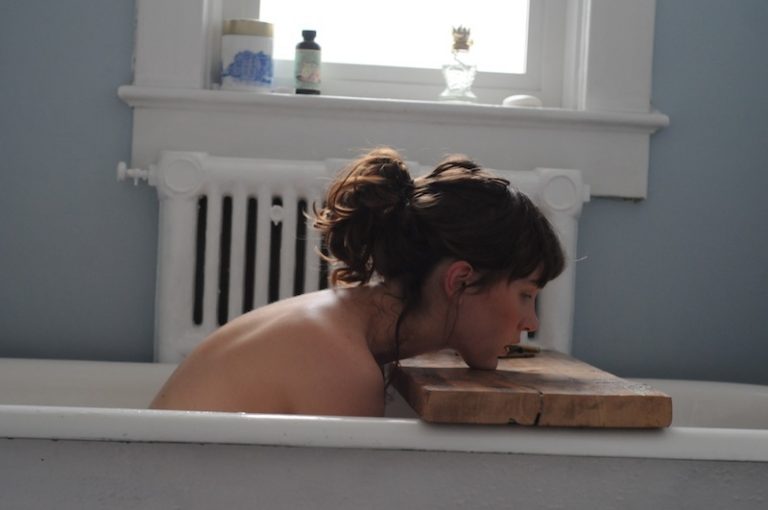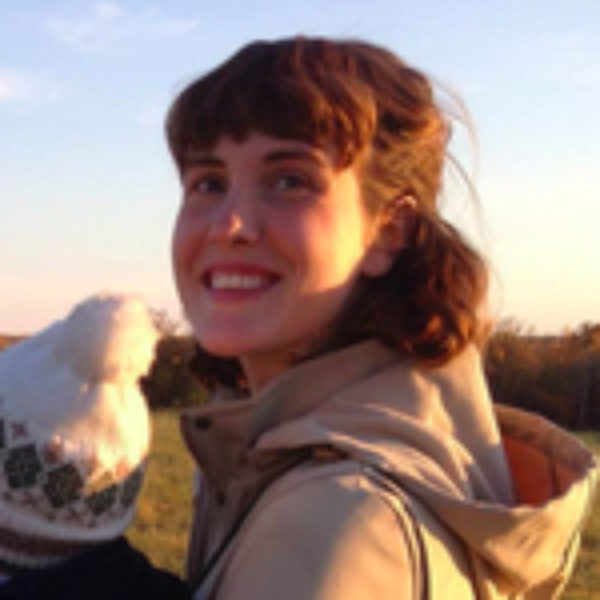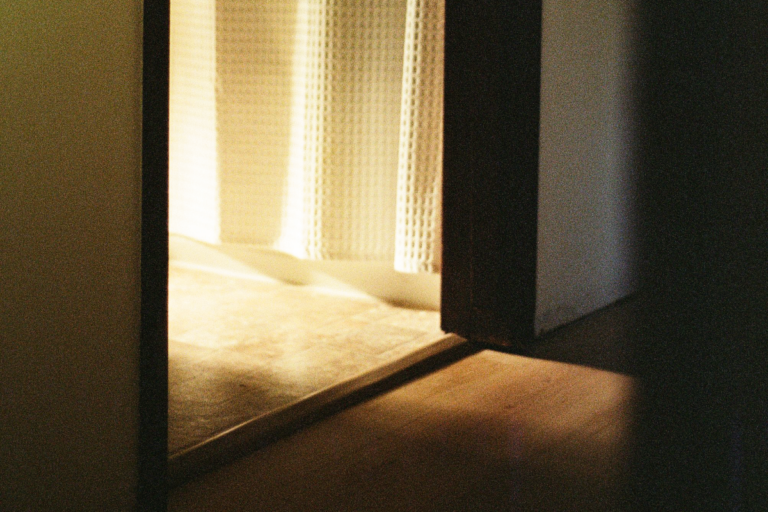
Image by Nikaela Marie Peters.
A Happening of Humans
“Humans are only one of many things, and all these things long to live, and the highest form of living is freedom: a man to be a man, a cloud to be a cloud, bamboo to be bamboo.”
— Richard Flanagan, The Narrow Road to the Deep North
Sometimes I think the things I have done in my life that matter most are the things that reveal me as an animal. I have labored children. I have had the sex that conceived those children. I have felt the pleasures of that sex. I have nursed those children. I have selected a mate, formed a pack, marked out a territory, and built a den.
My three-year-old talks about the world in animal terms. He asks that we call him a shark one day and a barracuda the next. He is usually a predator because they are fierce and powerful, though he reassures us that he is a friendly one who doesn’t eat people. Some days he’s a butterfly.
We watch so many episodes of Planet Earth with him. (The only TV we have allowed in our house has turned out to be the only TV he ever wants.) We watch as a “Jesus Christ lizard” walks on water and its relative the Komodo Dragon saunters down a beach. A giant grey hippo opens his mouth underwater so a school of fish can clean his teeth. A polar bear mother and her cub walk in their dirtied white coats through the pink and blue corpse of a humpback whale. It is all striking and startling.
My son is less awed than me. He seems to slot the information he receives from David Attenborough easily into his worldview. The parts I am worried will scare him — the deaths and savageries — are accepted by him as matter of fact. I am surprised at how easily he goes from relating to an animal on screen — calling it cute, imitating it, guessing at its desires — to letting it go: a baby penguin into the jaws of a seal. I try to facilitate his learning: “The cheetahs need to eat, sweetheart.” “The ostrich wasn’t sad to die because she became food for the cheetah family.” But I don’t think he is listening to me; I’m stating the obvious and he has already moved on.

One night after an episode and a bath and a debate over how many animal encyclopedias and dinosaur books he can take into bed with him, he finally sleeps. Our house quiets. His baby brother breastfeeds and is rocked and sung to, and dropped — a bag of rice — into his crib.
My husband and I are alone together. Intimacy feels far too proper a word for these rare moments. We don’t “sleep together” or “make love.” We have sex. We, as a biologist might say, engage in breeding behavior.
Not that it is dull — it is anything but. It feels more beautiful now than it did when we were first together, and our bodies were tighter and our skin brighter and we could have sex whenever we felt like it. Back then sex was all romance and fantasy. There was an element of seriousness to it; we were getting to know each other and everything was of consequence. Now that our pheromones have done their job and procured us mates, sex has been stripped of its mystery. There is no hiding everything we are. It’s simpler. The drive is different. We are no longer fantasizing. We are desiring and pleasuring and playing. We are dolphins.
A pterodactyl shrieks from one room over — a child of ours, calling out. One of us pulls on clothes and disappears into the dark to offer comfort. When we’re back in bed together, we laugh. We shush each other and try to be quiet, and it suddenly all seems hilarious to be sneaking around in a home that we share with people who are a direct result of this very business.
Early the next morning I am breastfeeding the baby in our bed. The sun lies in long slats over the sheets. The baby makes his early sounds and I have to shift him, on me, to make sure he doesn’t kick his dad in the head. I am struck by how our children are proof that what we are doing means more than it feels like it does. That what we are doing is a small part of a bigger picture that lasts longer than we do and, in a certain sense, has little to do with us.

From what I understand, the rare occurrence of monogamy in the animal kingdom is sometimes attributed to the dependency of their offspring: a pair stays together because it provides their young with the best chance of survival. This seems simple enough. But in reality it is also raw and chaotic. A female wolf stays up to three weeks in the den with her pups after they are born, during which time she and the pups are wholly dependent on the male for food. When the pups are older but still cannot hunt on their own, the mother and father take turns going out for food while the other “babysits.” The couple does not mate again for over a year.
My husband and I argue about how many kids we want to have. We bicker about whose turn it is to wake up in the middle of the night. Sometimes we are too tired to argue. Sometimes I worry that we are letting the frustrations build up, that we aren’t making the kind of time for each other that we need to stay strong and get even stronger.
Until about a year ago I didn’t think about animals that much. Now that I’m constantly being asked what I would choose to be (a wolf) or what my favourite swimming creature is (a manatee), I can’t imagine my life without this frame of reference. It puts things into perspective. When I think about my troubles in the context of other human troubles, I only feel guilty (i.e. at least I have a house to get messy). But when I compare myself to an animal, I do not compare the seriousness of our respective struggles, I see only that we both struggle.
When my firstborn was little I remember realizing that he was going to go through a range of emotions any given day with or without my intervention. I might as well provide boundaries for him to thunder against. I came to see this as my job, which might, I thought, protect him from being frightened by his own anger and wildness. His troubles weren’t great: he wasn’t allowed to touch the record player, he couldn’t eat a peach on the couch, he had to be quiet in church. But he railed against these setbacks and was as angry as if his troubles had been great. It helped me realize that my sometimes disproportionate emotional responses to the limitations of my life were normal and even healthy.
I was built to follow my instincts. My life is easier and my burden lighter than a mother octopus’s: she starves herself to death refusing to leave her eggs untended to get food. But our differences are less interesting than what we have in common: we are both bound to our children by instincts so powerful it often feels as if we are left without a will.

The thing I most clearly remember about being in labour with my second son is my husband’s body. I remember its exact smell, size, and proportions. I was floating somewhere, outside of myself, and his body, inhabited by him, was the thing in the room I understood best. Holding on to that body kept me in that room. Otters entangle themselves in seaweed so as not to float away while they sleep in the water. Every once in awhile, he smells exactly like he did that night, or I catch his body at the angle I held onto it then and I am knocked sideways with emotion. I am sure this is actually just a surge in neurochemicals in my brain, dopamine and adrenaline in my blood — but it feels like love.
I have found comfort in a kind of zoomorphism during these years parenting small children. I like to think of my family first and foremost as physical beings. That we are just doing what it is in our DNA to do. It takes the pressure off our disagreements and incompatibilities. It takes the pressure off of a traditional notion of romance. I am relieved to realize my husband and I are a family, not because our personalities are best suited or because we make time to get out of the house as a couple, but because we live together. Because we eat and sleep and rise and play and fight and fuck and pass time together.
In Marilynne Robinson’s Gilead, the elderly narrator writes to his young son:
“It’s your existence I love you for, mainly.”
I think this is the kind of love our children bring out in us: an existence-first type of love. And I’ve found that, since having children, I love my husband like that too. I love him mainly for the miracle of his being here at all. Beside me, in all this living we’re doing.



Share your reflection